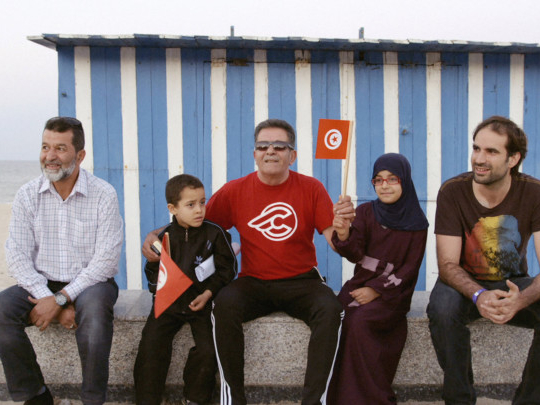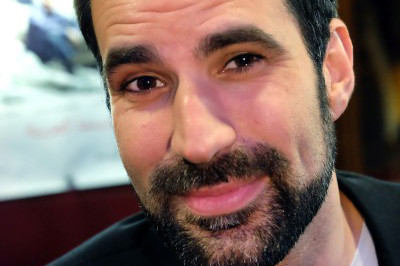
Culture and identity. These words are thrown around quite liberally but in reality may take a lifetime to define. While some adopt the culture of the country they are raised in, others take their cue from their parents’ roots. But then, what about bi-nationals? Who do they identify with? These are just some of the questions I pondered alongside director Alex Pitstra as we talked about his film Bezness as Usual.
The documentary recounts Pitsra’s childhood. His father, a so-called Tunisian womaniser, marries his Dutch mother and Alex is born. When Alex turns four, his father leaves to start another family in Switzerland. Decades later, he receives a letter from his father, who wants to make amends. Add in Alex’s furious Swiss half-sister Jasmin into the mix, and you have a family dynamic that is complex to say the least.
Here are excerpts from the conversation.
Why Bezness and not business?
The name Bezness as Usual means doing business with tourism [firms], in a way to help them and help yourself, it’s a Tunisian concept. With tourism booming in the 1970s and 80s came opportunity for relationships with European women who were open for cultural exchanges, but also [in] other ways. I am a product of such a relationship.
Is there a religious clash in the film?
It was a strange ambiguous relationship with someone you actually don’t know but try to get to know. Of course, religion is always a bit tricky because people tend to confuse religion with tradition and I feel that for him [his father] his religion is salvation — finding a way to [cleanse] himself before he dies because he did bad things. Only when he went to Switzerland, did he start going to mosque and changing his lifestyle, while being married to a Swiss woman [with] who only a year earlier he was partying and drinking with, and that broke that marriage immediately.
What is your relationship with culture and religion, and the difference between both of your cultures?
Well at the time I was anti-spiritual and only now I’m starting to understand how people can be religious, but I do have a problem with religion that is dogmatic. Certain behaviours and certain traditions and rituals, we all have them so it’s just so superficial to judge cultures based on their rituals. What’s important is are you able to have a human connection. We all have our problems but in the meantime try to respect and learn from each other.
Why do you think people alienate other cultures?
Because people don’t know who they feel the need to identify with, which is a human behaviour...The real loners are able to watch the [other] group and be okay with that. You want to feel belonging to either a family, a village, a city or a football team, you want to belong to something to feel safe and in control.
For more information go to dubaifilmfest.com
— The Young Journalist Award (YJA) at Diff is a training programme for high school and university students who are aspiring writers and reporters. Eight students are competing at the festival this year. One winner will secure a monthlong internship with Gulf News.









